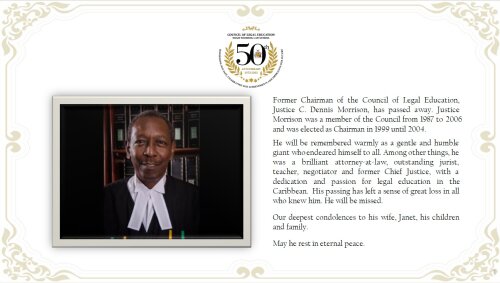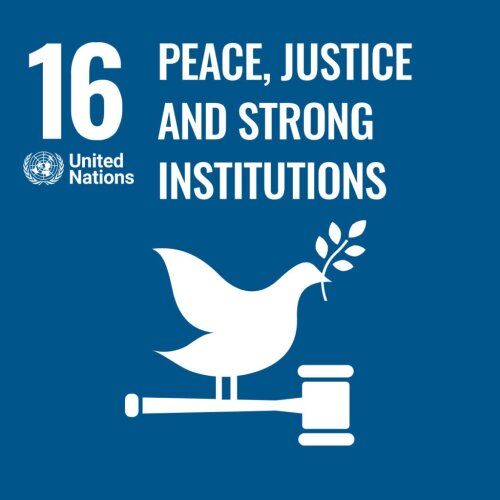Best Speeding & Traffic Ticket Lawyers in Trinidad and Tobago
Share your needs with us, get contacted by law firms.
Free. Takes 2 min.
Or refine your search by selecting a city:
List of the best lawyers in Trinidad and Tobago
About Speeding & Traffic Ticket Law in Trinidad and Tobago
Speeding and traffic ticket laws in Trinidad and Tobago are governed by the Motor Vehicles and Road Traffic Act. This legislation sets out regulations for speed limits, road rules, and penalties for traffic violations. Traffic tickets are issued by law enforcement officers for offenses such as speeding, running red lights, and reckless driving.
Why You May Need a Lawyer
There are several situations where you may need a lawyer for speeding and traffic ticket issues. If you have received a ticket and believe it was issued unfairly or inaccurately, a lawyer can help you challenge the ticket in court. Additionally, if you have accumulated multiple tickets or are facing serious penalties such as license suspension, a lawyer can provide legal representation and advice.
Local Laws Overview
In Trinidad and Tobago, speed limits vary depending on the type of road. For example, in built-up areas, the speed limit is 50 km/h, while on highways, the limit is 100 km/h. Traffic tickets typically come with fines, demerit points, and possible license suspension for repeat offenders. It is important to adhere to road rules and regulations to avoid legal issues.
Frequently Asked Questions
1. Can I dispute a traffic ticket in Trinidad and Tobago?
Yes, you can dispute a traffic ticket by appearing in court and presenting your case. It is advisable to seek legal advice before proceeding.
2. What are the penalties for speeding in Trinidad and Tobago?
Penalties for speeding include fines, demerit points, and possible license suspension depending on the severity of the offense.
3. How can a lawyer help me with a traffic ticket?
A lawyer can review your case, provide legal advice, represent you in court, and help you navigate the legal process effectively.
4. What should I do if I receive a traffic ticket?
If you receive a traffic ticket, you should carefully review the details of the ticket, consider your options, and seek legal advice if necessary.
5. How long do demerit points stay on my record?
Demerit points typically stay on your record for a certain period, after which they may be removed. It is important to be aware of your demerit point status.
6. Can I represent myself in traffic court?
While you have the right to represent yourself in traffic court, it is advisable to seek legal representation for the best possible outcome.
7. How can I avoid getting a traffic ticket?
To avoid getting a traffic ticket, follow road rules, obey speed limits, and drive responsibly at all times.
8. Are there alternative penalties for traffic violations?
Depending on the offense, alternative penalties such as community service or traffic school may be available as an alternative to fines or license suspension.
9. Will a traffic ticket affect my insurance rates?
Receiving a traffic ticket may affect your insurance rates, as insurers often consider traffic violations when determining premiums.
10. Can I pay a traffic ticket online?
In Trinidad and Tobago, there may be options to pay traffic tickets online through official channels. It is important to follow the instructions provided on the ticket.
Additional Resources
For more information on speeding and traffic ticket laws in Trinidad and Tobago, you can visit the Ministry of Works and Transport or consult with a legal professional specializing in traffic law.
Next Steps
If you require legal assistance or have questions about speeding and traffic ticket issues in Trinidad and Tobago, it is recommended to consult with a qualified lawyer who can provide guidance and support throughout the legal process.
Lawzana helps you find the best lawyers and law firms in Trinidad and Tobago through a curated and pre-screened list of qualified legal professionals. Our platform offers rankings and detailed profiles of attorneys and law firms, allowing you to compare based on practice areas, including Speeding & Traffic Ticket, experience, and client feedback.
Each profile includes a description of the firm's areas of practice, client reviews, team members and partners, year of establishment, spoken languages, office locations, contact information, social media presence, and any published articles or resources. Most firms on our platform speak English and are experienced in both local and international legal matters.
Get a quote from top-rated law firms in Trinidad and Tobago — quickly, securely, and without unnecessary hassle.
Disclaimer:
The information provided on this page is for general informational purposes only and does not constitute legal advice. While we strive to ensure the accuracy and relevance of the content, legal information may change over time, and interpretations of the law can vary. You should always consult with a qualified legal professional for advice specific to your situation.
We disclaim all liability for actions taken or not taken based on the content of this page. If you believe any information is incorrect or outdated, please contact us, and we will review and update it where appropriate.
Browse speeding & traffic ticket law firms by city in Trinidad and Tobago
Refine your search by selecting a city.











